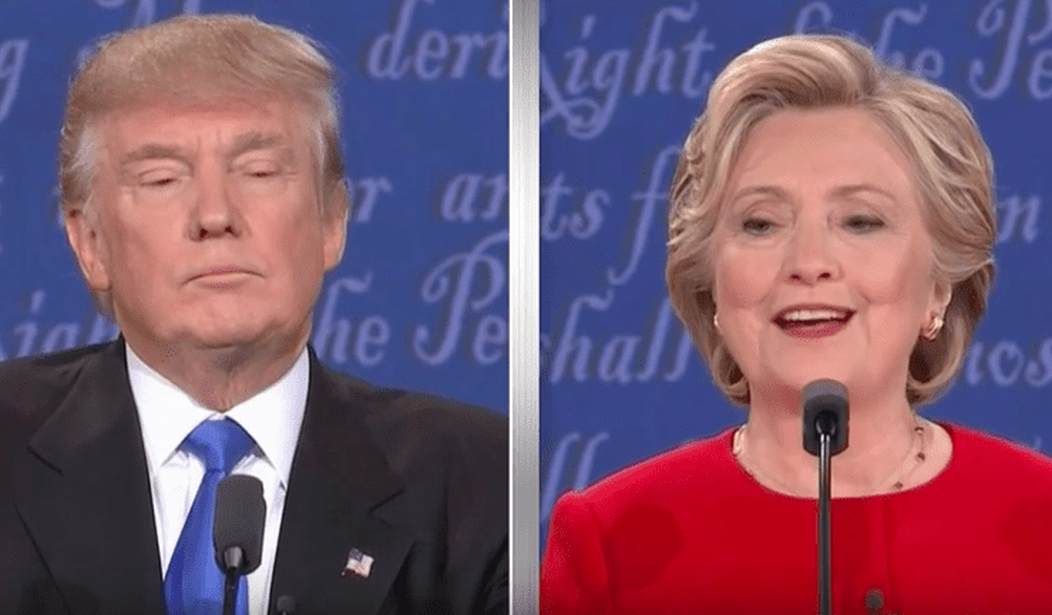ARLINGTON, Va. — President Trump announced two presidential actions here on Friday: a presidential memorandum on rebuilding the military and an expected order to halt entrance to the United States from a handful of Muslim-majority countries and freeze the refugee resettlement program.
Only the latter sparked a firestorm of fury from congressional Democrats late into Friday night, with Senate Minority Leader Chuck Schumer (D-N.Y.) calling it “one of the most backward and nasty executive orders that the president has issued” in his first week.
Trump came to the Pentagon with Vice President Pence to ceremonially swear in Defense Secretary James Mattis, who was officially sworn in on the night of the inauguration and began work last weekend. One of Mattis’ first calls was to NATO Secretary-General Jens Stoltenberg to “reinforce the importance he places on the alliance,” according to Pentagon spokesman Capt. Jeff Davis. Mattis has spoken this week with his counterparts in France, Germany and Israel, and leaves Feb. 1 on his first trip to South Korea and Japan.
Speaking before several dozen including defense leaders and White House aides in the Pentagon’s Hall of Heroes, Trump said he was signing the orders “to ensure the sacrifices of our military are supported by the actions of our government, and they will always be supported by the actions of our government.”
According to the order, all entry of individuals from countries of concern — not listed but believed to be Iraq, Iran, Libya, Somalia, Sudan, Syria and Yemen –would be banned for 90 days. U.S. officials would attempt to obtain security information from all foreign governments within the next 60 days, recommending at the end of that period which countries should be included “on a presidential proclamation that would prohibit the entry of foreign nationals.”
Refugees from all countries would be blocked for 120 days while the Department of Homeland Security, the State Department and the Director of National Intelligence unanimously decide which countries’ refugees will be allowed in. Fiscal year 2017 refugees would be limited to 50,000; President Obama allowed for 110,000 refugees.
All refugees from Syria are deemed “detrimental to the interests of the United States” and are blocked indefinitely. There’s an exception in the order for “when the person is a religious minority in his country of nationality facing religious persecution, when admitting the person would enable the United States to conform its conduct to a preexisting international agreement, or when the person is already in transit and denying admission would cause undue hardship — and it would not pose a risk to the security or welfare of the United States.” Trump told CBN Christians would receive priority in applying for refugee status.
Trump said at the Pentagon he was “establishing new vetting measures to keep radical Islamic terrorists out of the United States of America — we don’t want them here.”
“We want to ensure that we are not admitting into our country the very threats our soldiers are fighting overseas. We only want to admit those into our country who will support our country and love deeply our people,” he said. “We will never forget the lessons of 9/11 nor the heroes who lost at the Pentagon. They were the best of us. We will honor them not only with our words, but with our actions, and that’s what we’re doing today.”
House Armed Services Committee Ranking Member Adam Smith (D-Wash.), though, predicted Trump’s “reckless” order “will only create divisions within America, stoke fear and hate, and help recruit more terrorists and extremists to attack America, as well as our partners and friends.”
“Refugees — many of them women and children — already undergo an extremely comprehensive and thorough U.S. government vetting process before being admitted, including scrutiny by the Department of Homeland Security, the Federal Bureau of Investigation, the State Department, intelligence agencies, and others,” Smith noted. “Applicants for this status are held to the highest level of security screening through which we evaluate travelers or immigrants to the United States, and the process typically takes between 18-24 months.”
“If U.S. security agencies cannot verify details of a potential refugee’s story, that individual is not allowed to enter the United States.”
Smith added that “the fact that refugees want to make the United States their new home should be a source of pride for us.”
Sen. Tom Carper (D-Del.), the ranking member on the Senate Homeland Security and Governmental Affairs Committee, said the current year-and-a-half vetting process is “a long time to wait and a lot of hurdles that a member of ISIS would have to clear if they were going to try to use the refugee program to get to the United States.”
“The best way to combat the global threat of ISIS is to continue to degrade and destroy their forces overseas, rob them of their safe haven and hollow out their recruitment narrative that ‘ISIS is on the rise,'” Carper said. “We can fortify our refugee and immigrant vetting process and keep Americans safe without categorically denying safe haven for those who need our help the most—and today’s action sadly does not meet that test.”









Join the conversation as a VIP Member